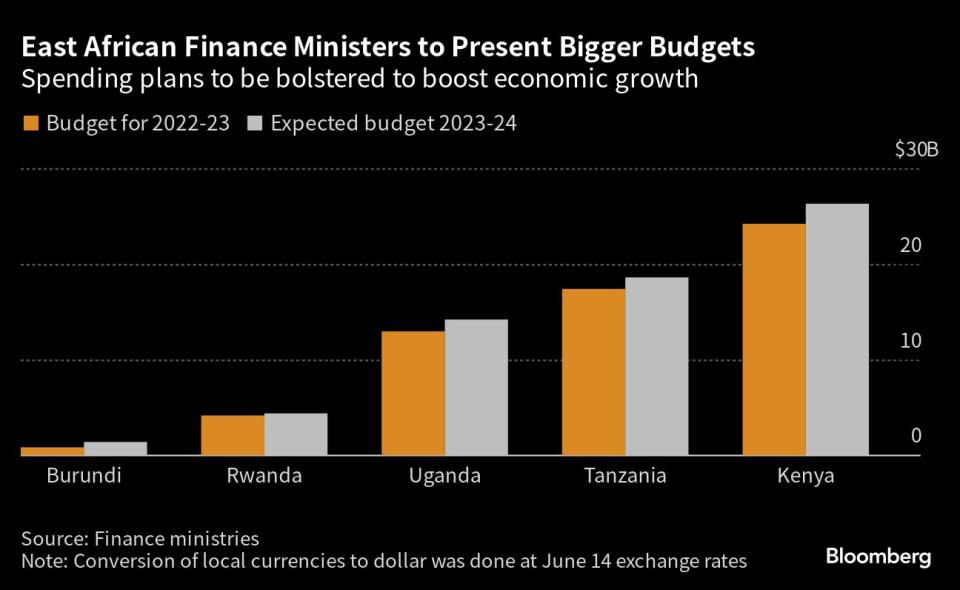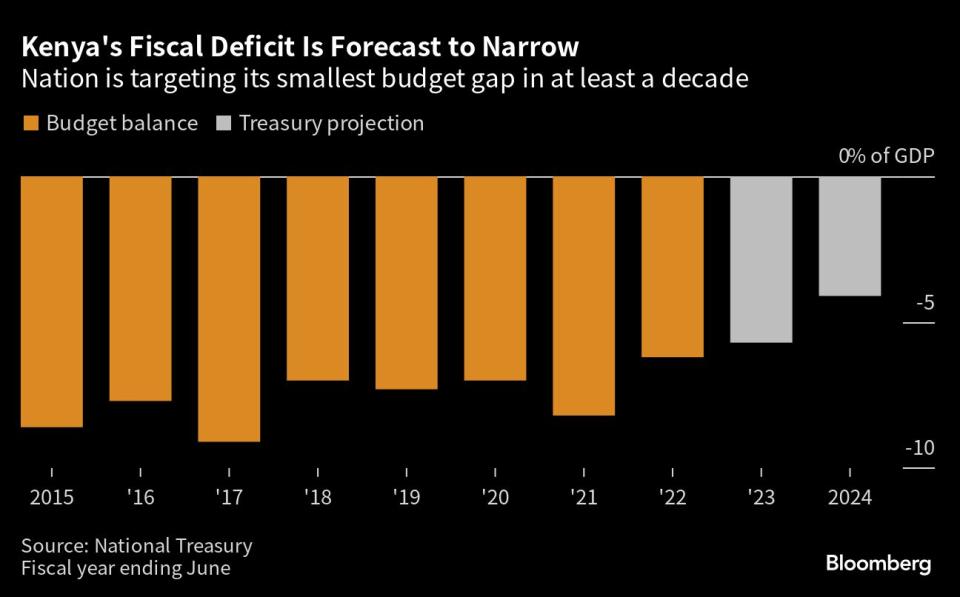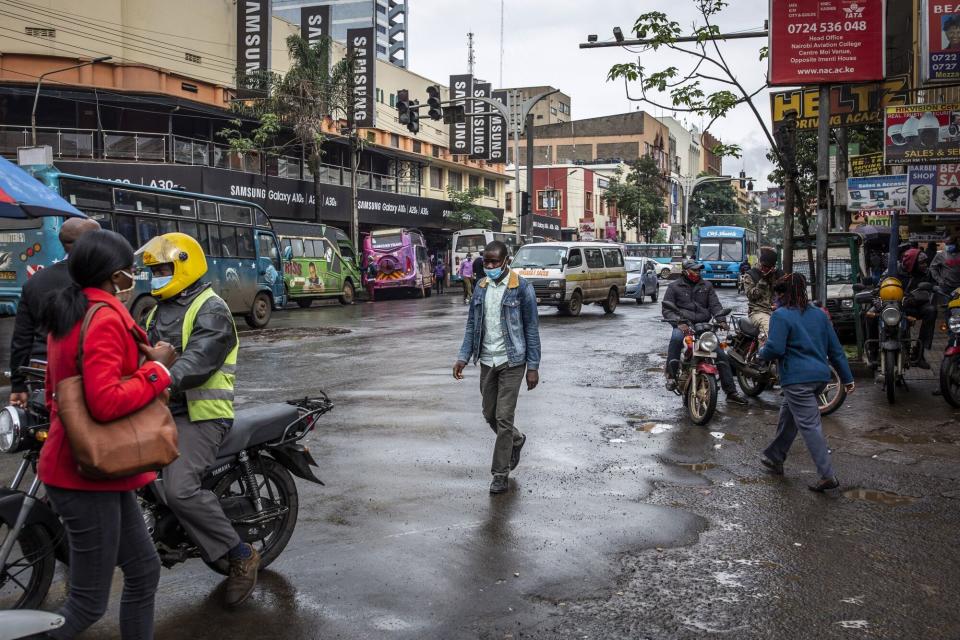East African Nations to Bolster Their Economies With Bigger Budgets
(Bloomberg) -- Kenya, Tanzania, Uganda and Rwanda are due to release their annual budgets on Thursday, with Burundi set to follow suit on June 19, providing details of their spending priorities and how they expect to fund them.
Most Read from Bloomberg
Social Security Benefits Targeted for Cuts by House Conservatives
A Goldman Partner’s Sexually Explicit Video Led to Millions in Settlement
Stock Rally Is Deepening Beyond AI-Fueled Craze: Markets Wrap
Workers Resisting the Office Grind Are Suddenly Lonely at Home
Most of the East African nations have already signaled that they will increase expenditure to shore up their economies against the fallout of Russia’s invasion of Ukraine and the continued aftermath of the coronavirus pandemic.
“Finance ministries in East Africa have little choice but to raise their spending as inflation means costs have continued to climb,” said Ben Hunter, an Africa analyst at risk advisory firm Verisk Maplecroft. “East African states sorely need more assistance from the global financial institutions now that access to capital markets has been curtailed for many. An expansion of concessionary lending will be crucial for achieving sustainable growth over the coming decade.”
Here’s what is known about the budget plans:
Kenya
The budget is the first since President William Ruto took office in September. The overarching fiscal framework approved by lawmakers this month envisions spending rising by 9% to 3.68 trillion shillings ($26.3 billion) in the fiscal year starting July 1. The government aims to increase tax collections by 17% to keep borrowing and the budget deficit in check. Parliament’s budget office has warned that target may be unattainable since revenue collection tends to move in tandem with economic growth. Gross domestic product is expected to expand 5.3% this year, according to the International Monetary Fund.
Tanzania
Budget guidelines issued by Finance Minister Mwigulu Nchemba’s office show that spending is estimated to rise by 7% to 44.4 trillion shillings ($18.6 billion) in the fiscal year through June 2024 as the government invests more in infrastructure. The budget deficit is expected to be contained to less than 3% of GDP, while external commercial borrowing of 2.1 trillion shillings is projected, a 31% decline from the current fiscal year.
Uganda
Lawmakers last month signed off on a 52.7 trillion shilling ($14.2 billion) budget for 2023-24, a 10% increase from the current fiscal year. The government is increasing spending in anticipation of a surge in revenue as commercial oil production comes on stream in 2025. The focus will be on boosting commercial agriculture, industrialization, the digital economy and services industries, according to the Finance Ministry.
Rwanda
Finance Minister Uzziel Ndagijimana has said that spending will increase 6% to 5.03 trillion francs ($4.4 billion) in 2023-24 and that public debt will be maintained at sustainable levels. Rwanda has scope to spend more, given that the IMF and African Development Bank project the economy to expand more than 6% this year, one of the fastest growth rates in Africa. The Finance Ministry expects to raise almost 3 trillion francs domestically, mainly from taxes, borrow 1.225 trillion offshore and secure 652.1 billion francs in external grants.
Burundi
Planned expenditure for the region’s smallest economy will grow by almost two thirds to 3.95 trillion francs ($1.4 billion), bolstered by increased revenue from nickel — the country has an estimated 6% of the world’s known deposits — and donor funds. The fiscal deficit is expected to widen to 728.9 billion francs from 197.4 billion francs. The budget will be the first to be delivered by Finance Minister Audace Niyonzima since he was appointed to his position in September. He replaced Domitien Ndihokubwayo, who had held the post since 2015.
--With assistance from Fred Ojambo, Fumbuka Ng'wanakilala, Okech Francis, Desire Nimubona, Naurine Ondiro and Helen Nyambura.
(Updates timing of Burundi’s budget in first paragraph.)
Most Read from Bloomberg Businessweek
Microsoft’s Sudden AI Dominance Is Scrambling Silicon Valley’s Power Structure
A Saudi Airline Embraces Luxury to End Emirates and Qatar’s Gulf Dominance
How Nvidia Became ChatGPT’s Brain and Joined the $1 Trillion Club
©2023 Bloomberg L.P.




